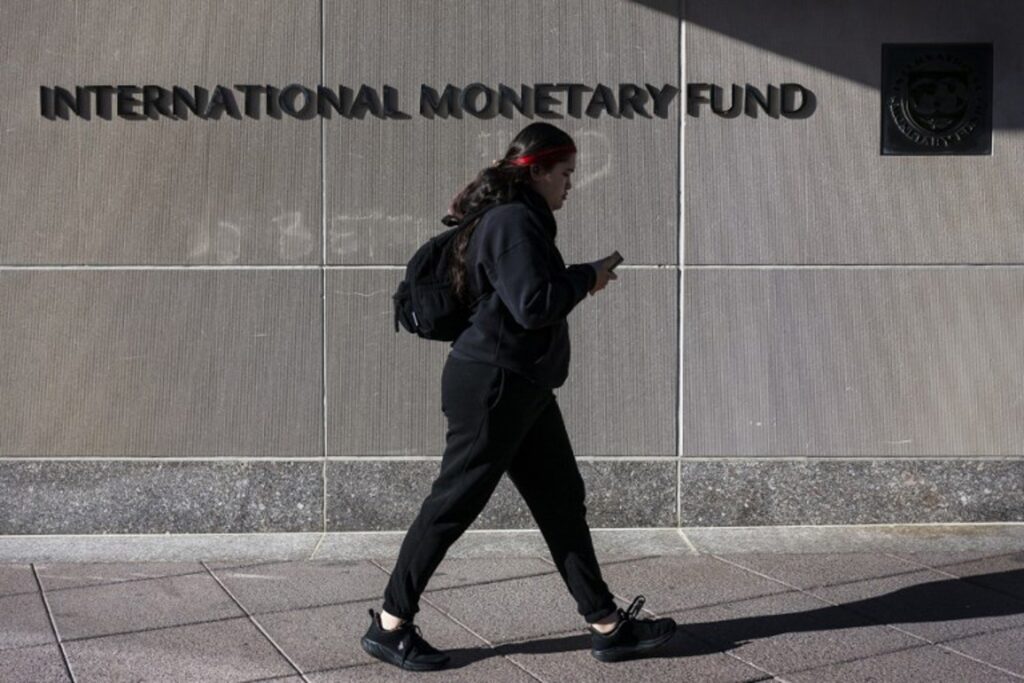Donald Trump’s trade war is significantly impacting global economic growth, the International Monetary Fund (IMF) notes in its latest April forecast.
The IMF refers to a “new era” for the global economic system, but does not anticipate a recession, stating that global inflation is unlikely to spiral out of control.
The Fund predicts that the global economy will grow by 2.8% this year and 3% next year. In its January estimate, it projected a 3.3% growth rate for both 2025 and 2026. If the 2.8% rate is confirmed, that would be the weakest economic growth since the COVID-19 pandemic in 2020.
In the United States, the IMF foresees a sharp slowdown, with an economic growth rate of only 1.8% this year, nearly 1% less than the previous forecast. Growth could be even lower in 2026, at 1.7%. The IMF also warns of a possible supply-side “shock,” which could disrupt production and lead to rising prices.
China, too, is being severely affected by the tariff war. The IMF estimates the Chinese economy will grow by 4% this and next year, a reduction of 0.6%.
There are also significant downgrades for countries like Mexico and regions such as the Middle East.
In Europe, forecasts have been moderately revised downward; the Eurozone economy is expected to grow by 0.8% this year, 0.2% less than in January. Europe is likely to be less impacted by the trade war, supplemented by increased government spending, such as on defence, to support growth.
For Belgium, the IMF anticipates a slowdown to 0.8% growth this year and 1% in 2026. Inflation in Belgium is expected to remain high at 3.2% in 2025, well above the Eurozone average of 2.1%. Belgium’s unemployment rate is expected to worsen slightly to 5.9% this year, up from 5.7% in 2024.
The IMF’s outlook is based on tariffs announced up to 4 April, following Trump’s so-called ‘Liberation Day.’ The US’s announced 90-day delay is not included in the forecasts, nor is the recent mutual tariff escalation between the US and China. If trade tensions ease, the IMF notes, that would have “an immediate positive effect” on growth forecasts.

